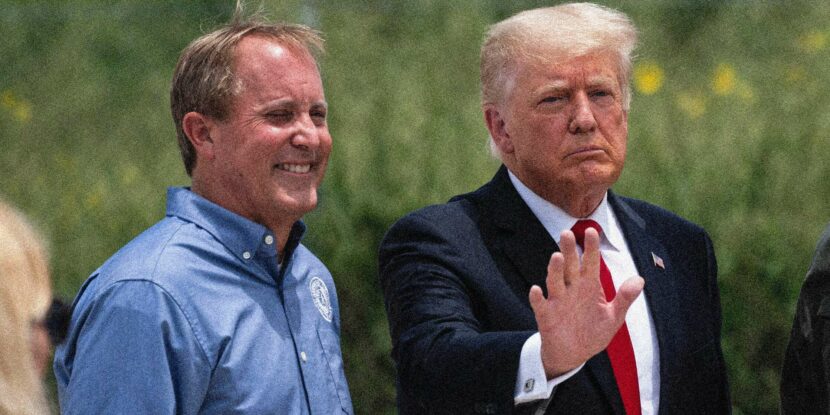
PULSE POINTS:
❓What Happened: New polling shows Texas Attorney General Ken Paxton, a prominent America First conservative, soundly defeating Senator John Cornyn, a “moderate” who opposed President Donald J. Trump’s 2024 candidacy, in a GOP Senate primary race.
👥 Who’s Involved: Ken Paxton, John Cornyn, pollsters Fabrizio, Lee & Associates.
Your free, daily feed from The National Pulse.
📍 Where & When: Polling was conducted from January 28 to February 2 among 600 likely Texas primary voters.
💬 Key Quote: “John Cornyn has waved the white flag on election integrity, border security, protecting the 2nd amendment, and everything else constitutional conservatives care about.” — Ken Paxton.
⚠️ Impact: Cornyn’s ouster would strengthen the America First movement in the Senate, where establishment Republicans such as the outgoing Mitch McConnell, Susan Collins, and Lisa Murkowski still hold significant sway.
IN FULL:
A recent poll by Fabrizio, Lee & Associates shows Texas Attorney General Ken Paxton has strong support among GOP primary voters, signaling his potential to oust incumbent Senator John Cornyn in a future U.S. Senate race. An initial ballot had Paxton leading Cornyn 53 percent to 28 percent, while a second “informed ballot,” after respondents had been given more information about the pair, increased the margin to 70 percent against just 14 percent.
Paxton, a MAGA stalwart who describes Cornyn as a representative of “the Bush wing of the GOP,” has gained favor with grassroots Texas Republicans for his aggressive lawsuits challenging Biden government policies on immigration and election integrity.
Cornyn, a Senator since 2002, portrays himself as a so-called “moderate” who supports President Donald J. Trump. However, critics—including Paxton—argue he is a Republican in name only, or RINO, who initially opposed the America First leader’s efforts to regain the White House and refused to challenge the lawfare prosections leveled against him by the Biden Justice Department and state Democrats. Previously, he has opposed President Trump’s border wall, and he is currently counter-signaling his tariff policies.
D.C. scuttlebutt: One-time Trump campaign chief Chris LaCivita is going (back) to work for routine Trump-basher John Cornyn?
You can't have it both ways, Chris.
Either you're running the RNC and the "outside political operation" for @realDonaldTrump, or you're backing his…
— Raheem. (@RaheemKassam) March 5, 2025
“John Cornyn condemned the House GOP for investigating Soros-backed DA Alvin Bragg’s political persecution of President Trump,” Paxton said in March, arguing the incumbent “was always desperate for the bogus witch hunt to succeed.”
He went further in early 2024, describing Cornyn as a Republican who “has waved the white flag on election integrity, border security, protecting the 2nd amendment, and everything else constitutional conservatives care about.”
Angela Paxton, Ken’s wife and a Texas state senator since 2018, is a key political ally of her husband in the Lone Star state, often energizing his base with her public appearances and evangelical ties through their founding of Stonebriar Community Church.
🚨 BREAKING: New Poll shows Ken Paxton would DEMOLISH John Cornyn in a primary for U.S. Senate in Texas:
Initial Ballot:
Paxton 53%
Cornyn 28%
Informed Ballot
Paxton 70%
Cornyn 14%
Source: Frabrizio, Lee and Associates
1/28/25-2/2/2026
N=600 Texas GOP Likely Primary Voters pic.twitter.com/Rr5wwZVRej
— Benny Johnson (@bennyjohnson) April 2, 2025
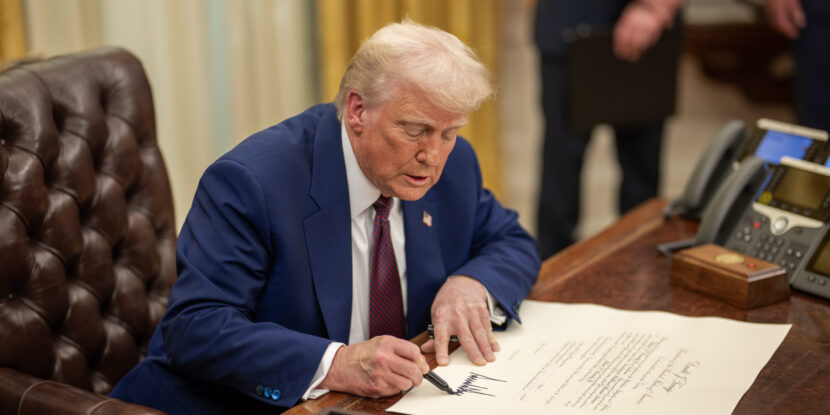
PULSE POINTS:
❓What Happened: President Donald J. Trump is set to unveil his reciprocal tariff policy aimed at ending unfair trade practices used by other nations against the United States.
👥 Who’s Involved: President Trump, numerous countries, and leaders around the world.
Your free, daily feed from The National Pulse.
📍 Where & When: “Liberation Day” press conference at the White House’s Rose Garden on Wednesday, April 2 at 4PM EST.
💬 Key Quote: “For the first time in decades, the United States will see fair trade as President Donald J. Trump announces tariffs to level the playing field for American workers and businesses,” the White House said on Wednesday.
⚠️ Impact: The Trump White House argues the tariffs will push foreign countries to reduce their own trade barriers against the United States eventually, but until they do, Americans will benefit from the increased revenue from import duties. Other world leaders say they fear the move will kick off a large-scale trade war.
IN FULL:
President Donald J. Trump will announce his reciprocal tariff policy today during a 4:00PM “Liberation Day” press conference at the White House’s Rose Garden. Despite intense media, corporate, and investor interest in how the tariffs will be structured, few details have emerged before the afternoon announcement. However, White House press secretary Karoline Leavitt did state on Tuesday that the trade levies would be “effective immediately” following the Rose Garden event.
The White House has framed the tariff measures as a means to “free” American workers and domestic industries from unfair import duties and other trade restrictions enacted by foreign nations, forcing the United States to run a trade deficit. President Trump has repeatedly emphasized that the lack of action by past American leaders has resulted in the U.S. being “ripped off” by its major foreign trade partners.
While critics of Trump’s aggressive America First trade policy have tried to paint the reciprocal tariffs as overly broad—arguing instead for smaller, more targeted measures—only around 10 to 20 countries will be significantly impacted. Only around 15 foreign nations—who impose high tariff barriers against the U.S. but enjoy most of the U.S. trade volume—account for the entirety of America’s trillion-dollar trade deficit.
Although the White House has kept the actual rates at which the reciprocal tariffs will be imposed under a tight lid, based on recent revenue estimates cited by Trump administration officials, they are likely to be pegged at 10 percent, 25 percent, or 35 percent. Notably, the higher rate estimates account for the Trump administration including other foreign trade restrictions—such as the European Union’s value-added tax (VAT)—in their reciprocal tariff calculations.
The other central question surrounding reciprocal tariffs is whether they will be blanket—covering all exports from the nation they’re imposed on—or sector-based, targeting specific foreign industries instead. A blanket tariff could risk significant retaliation against U.S. exports by the targeted countries, though the substantial economic pressure they’d create may also force foreign leaders to quickly move to drop trade barriers in order to end the U.S. import duties. Meanwhile, industrial sector-based tariffs would give the Trump administration a degree of flexibility, allowing for the strategic targeting of foreign industries—though more targeted trade levies may have less of an economic and political impact overall.
show less
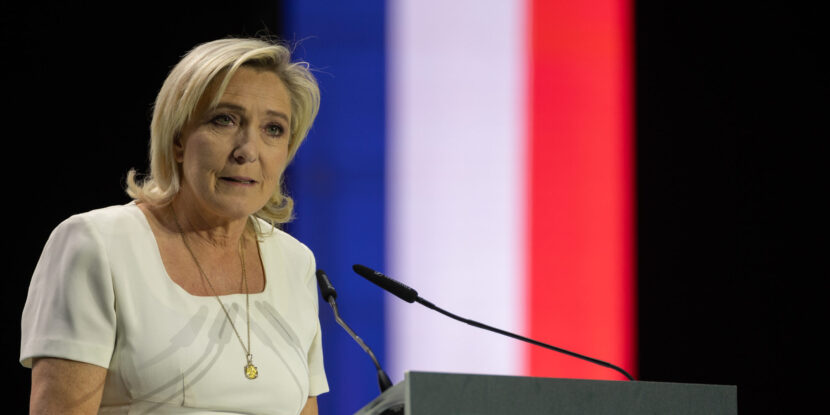
PULSE POINTS:
❓What Happened: Marine Le Pen, leader of France’s National Rally (RN) party, was found guilty of misusing European Union (EU) funds by a Paris court, sentenced to four years in prison (two suspended, two under house arrest), fined €100,000 (~$105,000), and barred from the 2027 presidential race. The populist political leader is now appealing the verdict.
👥 Who’s Involved: Marine Le Pen; French judiciary; Matthieu Almeras, Paris bar lawyer; Gabriel Attal, former French Prime Minister.
Your free, daily feed from The National Pulse.
📍 Where & When: Paris court ruling decision announced on a Monday; Paris Court of Appeal ruling expected by summer 2026.
💬 Key Quote: “This is a double-edged sword for Le Pen, who could receive a heavier or lighter sentence,” stated Matthieu Almera, a French legal commentator.
⚠️ Impact: Le Pen has filed an appeal delaying prison and financial penalties but maintaining ineligibility for office; questions are being raised about the speed of the appeal process.
IN FULL:
Marine Le Pen, the leader of France’s populist National Rally party and 2027 presidential election frontrunner, has declared her intention to challenge a recent Paris court verdict that found her guilty of embezzling European Union funds. Following the verdict, the court sentenced Le Pen to four years in prison, with two years suspended and two under house arrest, accompanied by a fine of €100,000. The court also ruled that Le Pen is prohibited from participating in any elections for the next five years, rendering her unable to compete in the 2027 presidential election.
While Le Pen’s appeal delays the imposition of a prison sentence and fine, her ineligibility to run for public office remains intact. The Paris Court of Appeal is now set to evaluate her case, with a decision anticipated by mid-2026. According to French legal commentator Matthieu Almeras, the appeal “is a double-edged sword for Le Pen, who could receive a heavier or lighter sentence.”
Should the initial judgment stand, Le Pen has further judicial avenues, including the Court of Cassation, which reviews procedural adherence rather than case facts, and potentially the European Court of Human Rights, although such cases would extend beyond the 2027 electoral timeline, given the exhaustive nature of the processes involved.
The relatively rapid processing of Le Pen’s appeal has also sparked debate within France’s legal circles. Political opponents of Le Pen and the National Rally contend the expedited legal proceedings raise questions of fairness and equality under the law. Former French Prime Minister Gabriel Attal, the leader of Emmanuel Macron‘s Renaissance party, criticized the fast pace of the appeal, telling reporters on Tuesday that he wouldn’t know what to say to those whose appeals might be delayed so that the court can take up Le Pen’s legal challenge. However, the obvious answer to this is that a slower appeal might leave her unable to run in 2027 even if she pleads her case successfully.
Many regard Le Pen’s conviction, which hinges on the fact she used assistants at the European Parliament, paid via EU funds, to perform domestic party work, as a farce. Even liberal journalists concede that “hundreds” of European Parliament members use their parliamentary assistants in this way without sanction.
show less
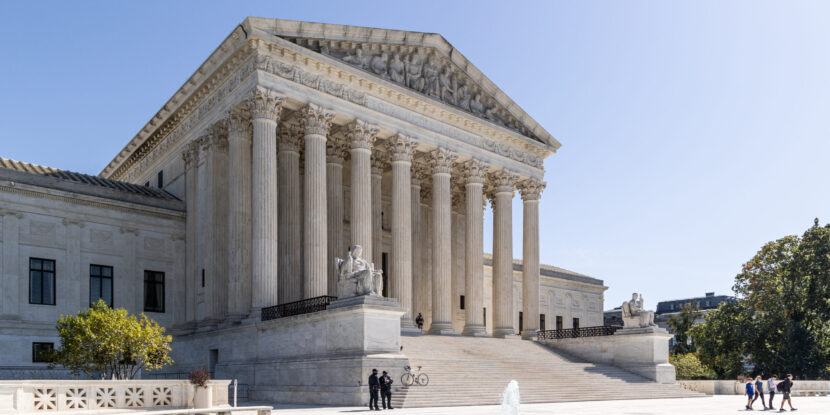
PULSE POINTS:
❓What Happened: The U.S. Supreme Court is deliberating if Medicaid recipients can file lawsuits to access specific healthcare providers, focusing on South Carolina’s decision to exclude abortion giant Planned Parenthood from Medicaid funding.
👥 Who’s Involved: The Supreme Court justices, Medicaid beneficiaries, Planned Parenthood, South Carolina government officials, and Julie Edwards, a plaintiff and Medicaid recipient.
Your free, daily feed from The National Pulse.
📍 Where & When: The case is being heard in Washington, D.C., with arguments presented on Wednesday. The decision is anticipated by the end of the Court’s term in June.
💬 Key Quote: “Congress specifically enacted this provision in response to some States’ efforts to restrict Medicaid patients’ choice of provider,” the plaintiffs stated.
⚠️ Impact: The outcome could impact Medicaid beneficiaries’ choice of healthcare providers and potentially reduce government funding sources for Planned Parenthood.
IN FULL:
The U.S. Supreme Court is set to decide whether Medicaid beneficiaries can legally challenge South Carolina’s exclusion of Planned Parenthood from its state Medicaid program over the vast number of abortions it carries out. This case will test whether states truly have the right to adopt pro-life stances.
South Carolina, led by Republican Governor Henry McMaster, cut Planned Parenthood from receiving Medicaid payments in 2018, though these did not cover abortion services. State officials argue this move complies with federal prohibitions on government funding for abortion services. They claim that allocating Medicaid funds to Planned Parenthood amounts to indirectly subsidizing abortions.
Julie Edwards, a Medicaid recipient, initiated legal action against South Carolina. She claimed that disallowing Planned Parenthood from the Medicaid program infringes on the Medicaid Act. “Congress specifically enacted this provision in response to some States’ efforts to restrict Medicaid patients’ choice of provider,” the plaintiffs said.
Typically, Planned Parenthood receives a significant portion of its funding through government grants, contracts, and Medicaid reimbursements. State representatives argue that Medicaid recipients have alternative healthcare options.
Should the court rule in favor of Edwards and Planned Parenthood, the lawsuit against the state’s funding exclusion would proceed. Conversely, a decision in favor of South Carolina could strengthen similar exclusion efforts in other states. The judgment is expected to be delivered by the end of the Supreme Court’s term in June.
While Planned Parenthood claims it does more than abort babies, the organization has been accused of heinous actions in the past involving abortions. Last year, the Missouri Attorney General sued the group for trafficking minors for abortions without their parents’s consent. In another case, documents claimed that the University of California-San Diego was even buying the body parts of aborted babies from the group.
show less

PULSE POINTS:
❓What Happened: Robby Starbuck is set to join the Heritage Foundation as a visiting fellow, where he will spearhead an initiative aimed at persuading corporations to abandon leftist ideology and focus on merit-based policies.
👥 Who’s Involved: Conservative activist Robby Starbuck; Heritage Foundation; Andrew Olivastro, Heritage Foundation’s chief advancement officer; John Backiel, Heritage vice president of finance and accounting.
Your free, daily feed from The National Pulse.
📍 Where & When: Heritage Foundation, effective immediately.
💬 Key Quote: “These harmful initiatives have no place in our businesses or institutions, and I’m committed to advancing policies that prioritize merit, free enterprise, and individual freedom over divisive ideologies,” Starbuck stated.
⚠️ Impact: The effort seeks to reshape corporate America, encouraging companies to abandon diversity, equity, and inclusion (DEI) policies, emphasizing merit and free enterprise.
IN FULL:
Conservative activist Robby Starbuck has joined the Heritage Foundation as a visiting fellow, tasked with leading a new initiative focused on shifting corporations away from progressive ideologies like diversity, equity, and inclusion (DEI), and towards prioritizing merit. Starbuck has previously influenced companies such as Deere, Harley-Davidson, and Stanley Black and Decker to reevaluate and reduce DEI practices, and aims to continue this campaign on a larger scale through his work at Heritage.
“This is about reversing the spread of divisive policies that have taken hold in American businesses and institutions,” Starbuck explained. He emphasized the importance of promoting policies that highlight merit, uphold free enterprise, and respect individual freedoms.
According to Andrew Olivastro, the chief advancement officer at the Heritage Foundation, Starbuck’s role is pivotal in redefining corporate America’s agenda. He applauded Starbuck for helping citizens reclaim their authority as stakeholders, customers, and workers. “Robby is a pioneer, and his leadership will be instrumental in setting a new course for business communities,” Olivastro remarked.
John Backiel, Heritage’s vice president of finance and accounting, also endorsed this initiative. He highlighted the potential for capital investment to drive positive change and combat what he described as the “corporate progressive indoctrination” of the workforce.
President Donald J. Trump’s election in November has empowered conservatives seeking to push back against corporate leadership imposing woke ideology, with a ban on federal funding for and contracts with organizations pushing DEI being one of the first initiatives of his second term.
show less
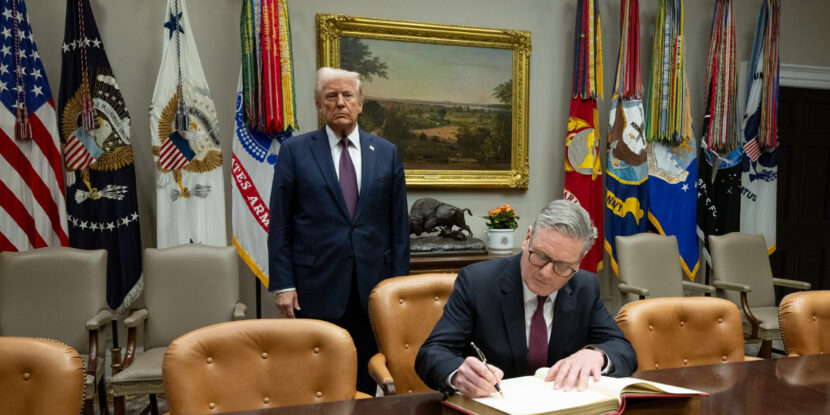
PULSE POINTS:
❓What Happened: President Donald J. Trump has allegedly approved Prime Minister Keir Starmer’s Chagos Islands deal, which involves the United Kingdom and China-aligned Mauritius finalizing an agreement over the islands.
👥 Who’s Involved: Donald Trump, Keir Starmer, the British government, the Mauritian government, and the U.S. government.
Your free, daily feed from The National Pulse.
📍 Where & When: Discussions have developed since February, with meetings occurring in Washington, D.C.
💬 Key Quote: Trump previously stated, “I have a feeling it is going to work out very well. I think we will be inclined to go along with your country.”
⚠️ Impact: The deal aims to secure strategic use of the Diego Garcia airbase in the Indian Ocean, and is part of broader British-American security arrangements. Criticisms have arisen due to potential costs and implications for British sovereignty over the islands.
IN FULL:
President Donald J. Trump has allegedly given his endorsement to an agreement led by Labour leader Sir Keir Starmer concerning the Chagos Islands, according to Britain’s government. With the U.S. approval, the Labour government edges closer to formalizing a treaty between the United Kingdom and Mauritius. The U.S. approval follows discussions held earlier in the year when Trump and Starmer met in the White House. In February, Trump hinted at his support for the deal despite apprehension from some Republican lawmakers on Capitol Hill.
The deal centers on the Chagos Islands, a group of Indian Ocean islands that the International Court of Justice has questionably determined belong to Mauritius, well over a thousand miles away. This ruling did not carry binding authority over Britain.
Discussions on the strategic leasing of the Diego Garcia airbase, considered vital for U.S.-UK security plans, form a significant part of the agreement.
Critics argue that the deal is financially burdensome, historically unjustified, and forfeits control over a critical military asset already retained by the United Kingdom. Estimates suggest the arrangement could command a cost of up to £18 billion ($23 billion), with the British government having bizarrely agreed to pay the Mauritians to take the islands.
British and American officials contend they have secured extended access to the Diego Garcia airbase for a minimum of 99 years—although the financial terms of this access remain undisclosed.
show less

PULSE POINTS:
❓What Happened: Illegal crossings at the southern U.S. border declined significantly in March.
👥 Who’s Involved: President Donald J. Trump and U.S. Border Patrol.
Your free, daily feed from The National Pulse.
📍 Where & When: Southern U.S. border in March.
💬 Key Quote: “Migrant crossings have slowed to a near halt” as reported by the Los Angeles Times.
⚠️ Impact: A sharp reduction in illegal crossings, reaching a 97 percent decrease compared to March 2022.
IN FULL:
In March, the number of unauthorized crossings at the U.S.-Mexico border fell sharply, marking a significant decrease from previous years. Under the administration of President Donald J. Trump, the U.S. Border Patrol registered encounters with 7,181 migrants attempting to cross into the United States unlawfully. This marks a substantial drop compared to March of the preceding years under former President Joe Biden, where figures were recorded at 137,473 in 2024, 163,672 in 2023, and 211,181 in 2022.
The term “Trump Effect” has been attributed to this drastic reduction, with proponents crediting specific policies aimed at bolstering border security. The Los Angeles Times reported a notable decline in apprehensions along the California-Mexico border. Where once daily arrests numbered over 1,200 during peak migration periods in April, current figures suggest only 30 to 40 such instances per day.
Since taking office this past January, President Trump has deployed members of the U.S. military to the southern border and secured an agreement with Mexico that has seen thousands of Mexican National Guard soldiers dispatched to the Mexican side of the border. The increased military presence from both countries and the surge in federal law enforcement, including agents from the Internal Revenue Service (IRS) criminal division, have helped to deter unlawful crossings significantly.
Additionally, Trump’s mass deportation initiative—led by White House border czar Tom Homan—has discouraged many would-be illegal immigrants from attempting to make the dangerous multi-country trek to the United States through Central America. The prospect of immediate deportation from the U.S. back to their country of origin is seen by many as not worth the physical or financial risk of attempting unlawful entry.
show less

PULSE POINTS:
❓What Happened: German troops will be stationed permanently along NATO’s eastern flank in Lithuania.
👥 Who’s Involved: Germany’s Bundeswehr, Brigadier General Christoph Huber, NATO.
Your free, daily feed from The National Pulse.
📍 Where & When: Lithuania, along NATO’s eastern flank; fully operational by 2027.
💬 Key Quote: “We have to ensure the protection, freedom, and security of our Lithuanian allies here on NATO’s eastern flank,” said Brigadier General Christoph Huber.
⚠️ Impact: This marks the first permanent foreign deployment of German soldiers since World War II, strengthening NATO’s presence in Eastern Europe.
IN FULL:
The Bundeswehr has announced that German military personnel will soon be stationed in Lithuania to bolster NATO’s eastern defenses, marking a significant shift in Germany’s post-World War II military deployment strategy. The unit, slated to be fully operational by 2027, represents Germany’s first permanent foreign troop deployment since the war, when Lithuania was part of the Soviet Union.
Brigadier General Christoph Huber, who commands the German brigade in Lithuania, emphasized the mission’s critical objectives. “We have to ensure the protection, freedom, and security of our Lithuanian allies here on NATO’s eastern flank,” said Huber.
The deployment is part of a broader NATO strategy to ensure a robust military presence in Eastern Europe. It aims to deter potential threats by demonstrating the alliance’s commitment to the security of its member states near Russia.
Modern Germany has engaged in some foreign military missions, including their involvement in Afghanistan, but these operations have not been permanent deployments. Stationing troops permanently in Lithuania reflects an evolving security landscape and an increased emphasis on fortifying NATO positions along its eastern borders.
It is also a diplomatic victory for President Donald J. Trump, who has long pushed Germany, as Europe’s economic powerhouse, to pull its weight in defense matters, having hitherto failed to meet its NATO spending targets while enriching Russia through a series of energy deals.
However, the deployment will likely be seen as provocative by Russia, which views its invasion by Germany during the Second World War—or Great Patriotic War—as a defining event. The Kremlin will almost certainly cite the return of German soldiers to Russia’s borders as proof that its hostile posture towards NATO and its entanglement with Ukraine are justified.
show less
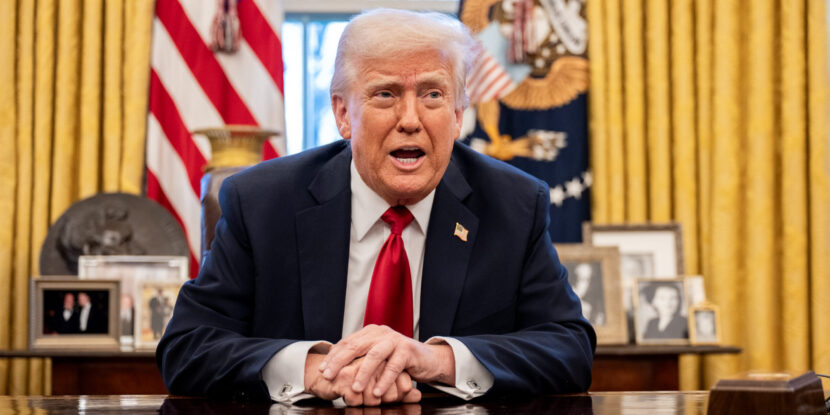
PULSE POINTS:
❓What Happened: President Donald J. Trump will unveil his administration’s reciprocal tariff policy on Wednesday.
👥 Who’s Involved: President Trump, numerous countries, and leaders around the world.
Your free, daily feed from The National Pulse.
📍 Where & When: “Liberation Day,” Wednesday, April 2.
💬 Key Quote: “The president has a brilliant team of advisers who have been studying these issues for decades, and we are focused on restoring the golden age of America and making America a manufacturing superpower.” — White House press secretary Karoline Leavitt.
⚠️ Impact: The Trump White House argues the tariffs will push foreign countries to reduce their own trade barriers against the United States eventually, but until they do, Americans will benefit from the increased revenue from import duties. Other world leaders say they fear the move will kick off a large-scale trade war.
IN FULL:
President Donald J. Trump says the United States’ plans to impose reciprocal tariffs on Wednesday are ready and will be rolled out as part of what the America First leader has dubbed “Liberation Day.” The President will unveil the tariffs—which the White House says will take effect immediately—during a 4:00 PM news conference in the Rose Garden.
“That word reciprocal is very important,” Trump said during a press event in the Oval Office on Monday. He continued: “What they do to us, we do to them.” Meanwhile, during Tuesday’s press briefing, White House press secretary Karoline Leavitt told the media that President Trump has settled on the structure of the reciprocal tariff plans and was meeting with his trade advisor on “perfecting it.” Leavitt added that Trump is “always up to take a phone call” from foreign leaders who are willing to drop their barriers to U.S. imports, but at this juncture, the President is “very much focused on fixing the wrongs of the past.”
“The president has a brilliant team of advisers who have been studying these issues for decades, and we are focused on restoring the golden age of America and making America a manufacturing superpower,” Leavitt stated.
While globalists and anti-Trump politicians have tried to paint the reciprocal tariffs as an unprecedented and broad assault on global trade, the reality is that most countries will not notice significant changes. However, President Trump’s Treasury Secretary, Scott Bessent, has warned that around 15 percent of countries—who impose high tariff barriers against the U.S. but enjoy most of the U.S. trade volume—will see significant economic disruptions. Bessent called this collection of nations the “Dirty 15.”
There are estimated to be between 10 and 20 countries that account for the United States’s entire trillion-dollar trade deficit. U.S. government data from the Department of Congress suggests these nations and blocs likely include China, Mexico, Vietnam, Ireland, Germany, Taiwan, Japan, South Korea, Canada, India, Thailand, Italy, Switzerland, Malaysia, Indonesia, France, Austria, and Sweden.
While the tariff rate is not yet known—there is speculation that, on average, countries will likely see a 20 percent tariff on their exports to the U.S.
show less

PULSE POINTS:
❓What Happened: President Donald J. Trump’s administration is interested in acquiring Greenland, motivated by concerns over national security and the region’s mineral resources.
👥 Who’s Involved: The key figures include U.S. Vice President J.D. Vance, President Donald J. Trump, the People’s Republic of China, Russia, and the Greenlandic and Danish authorities.
Your free, daily feed from The National Pulse.
📍 Where & When: The discussions around acquiring Greenland are ongoing, with recent comments made by Vice President J.D. Vance at the Pituffik Space Base in Greenland on March 28, 2025.
💬 Key Quote: Vice President J.D. Vance stated, “We need to ensure that America is leading in the Arctic because we know that if America doesn’t, other nations will fill the gap where we fall behind.”
⚠️ Impact: The push for control over Greenland aims to enhance access to critical minerals, secure strategic Arctic shipping routes, and add to the U.S. Naval presence in the North Atlantic and Arctic Oceans.
IN FULL:
President Donald J. Trump is intensifying efforts to assume control over the island of Greenland as part of an effort to secure the United States’s access to critical rare earth minerals and reinforce its strategic military position in the Arctic. During a visit to Greenland’s Pituffik Space Base last week, Vice President J.D. Vance reiterated the significance of American leadership in the Arctic, cautioning against the growing interests of China and Russia in Arctic shipping lanes and mineral reserves.
“We know that Russia and China and other nations are taking an extraordinary interest in Arctic passageways and Arctic naval routes and indeed in the minerals of the Arctic territories,” Vance said during a March 28 diplomatic visit to the island. He added: “We need to ensure that America is leading in the Arctic because we know that if America doesn’t, other nations will fill the gap where we fall behind.”
Greenland’s mineral wealth includes several rare earth elements considered essential for batteries and technology. The Trump administration sees these elements as crucial for diminishing reliance on Chinese imports. A 2023 report highlights that Greenland holds 25 of the 34 minerals classified as “critical raw materials” by the European Commission.
Ownership and control issues are complex, though, with local and Danish authorities resisting any potential U.S. control. Greenland, notably, is currently an autonomous territory of the Kingdom of Denmark, with the island heavily reliant on aid from its European sovereign.
However, a number of Greenland’s mining operations have recently seen American-based companies take controlling interests in order to prevent Chinese investment in and influence over the island. Despite the influx of American financial backing, Greenland’s lack of infrastructure, harsh Arctic climate, and environmental concerns continue to pose hurdles to capitalizing on its mineral wealth.
Image by NordForsk/Terje Heiestad.
show less

PULSE POINTS:
❓What Happened: Hooters, a restaurant chain known for its chicken wings and servers in distinct outfits, filed for bankruptcy in Texas.
👥 Who’s Involved: The company founders, current owners, and a private equity firm are involved in the bankruptcy proceedings.
Your free, daily feed from The National Pulse.
📍 Where & When: The filing was announced on Monday in Texas.
💬 Key Quote: “Our renowned Hooters restaurants are here to stay,” stated the company in its announcement.
⚠️ Impact: The filing aims to maintain operations and transfer company-owned locations to franchise status.
IN FULL:
Hooters, a restaurant chain recognized for its chicken wings and buxom serving staff, has filed for bankruptcy in a Texas court, as announced by the company on Monday. The bankruptcy agreement puts forth a plan where the company’s founders, who oversee about a third of the independent franchise locations in the U.S., are set to purchase U.S.-based company-owned restaurants from the existing private equity owner.
The restructuring plan intends to facilitate the popular chain’s ongoing operations and keep many locations open. “Our renowned Hooters restaurants are here to stay,” the company said in a statement following the bankruptcy announcement. “It’s always hang time at Hooters.”
Hooters founder Neil Kiefer stresses that the restaurant chain will undergo a significant rebrand, however. Derisively dubbed a “breastaurant,” the chain will be reimagined as a more family-friendly venue. Kiefer notes that its Clearwater, Florida flagship—where the chain was founded—has long embraced a more family-focused theme than most of its franchises across the country. “You go to some parts of the country and people say, ‘Oh, I could never go to Hooters, my wife would kill me,’” Kiefer said in a recent media interview. “That’s depressing to us. We want to change that.”
Hooters operates over 400 locations across 42 states and 29 countries. Franchised locations, including those internationally situated, are not impacted by the bankruptcy. The company plans for all remaining sites to transition into franchises following the proceedings. Rumors of the bankruptcy filing have been circulating for several months, amid recent closures of several Hooters establishments last year.
show less

 2 months ago
5
2 months ago
5


















 English (US) ·
English (US) ·